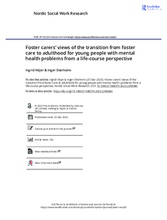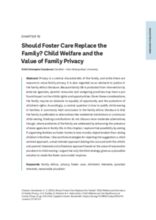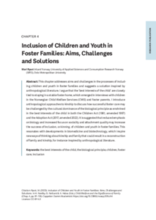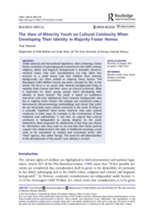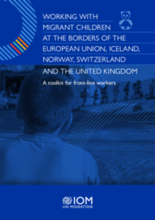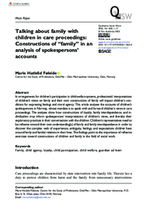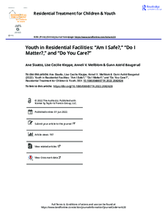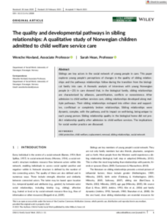Displaying 11 - 20 of 111
This article aims to build knowledge, from a life-course perspective, of foster carers’ views of the transition from care to adulthood for young people with mental health problems by interviewing carers from foster homes in Norway and Sweden.
In this chapter in the book "Child Welfare and the Value of Family Privacy", the author discusses moderate alternatives to address problems of the family by enhancing the presence of state agencies in family life. The author asks if organising families as foster homes is less morally objectionable than raising children in families by examining the child welfare system in Norway.
This chapter in the book "Child Welfare and the Value of Family Privacy" addresses aims and challenges in the processes of including children and youth in foster families and suggests a solution inspired by anthropological literature. The author argues that the ‘best interests of the child’ are closely tied to staying in a stable foster home, which emerged in interviews with children in the Norwegian Child Welfare Services (CWS) and foster parents.
In this article, the focus is on youth with minority backgrounds living in majority foster homes and their views on cultural continuity. What is important for these young people when developing their identity in foster homes? The study is based on qualitative interviews with nine adolescents from minority
backgrounds who live in majority foster homes, which are homes in which one or both foster parents have ethnic Norwegian backgrounds. The analysis was conducted using a hermeneutic phenomenology methodology and shows that youth do not necessarily want cultural continuity in the sense of living in a culturally “matched” foster home.
This Toolkit builds on the outcomes of an international thematic workshop on addressing the needs of migrant children at borders, consolidated with IOM best practices and additional research inputs.
This volume covers a broad spectrum of current research findings concerning the participation of young people in foster families and residential living groups in Australia, Canada, Germany, Ireland, Italy, Portugal, Norway, Sweden, and Switzerland as well as cross-nationals perspective on children and young people’s participation in foster and residential care placements in Great Britain and France.
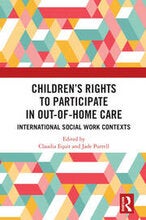
This article analyses the accounts of children’s spokespersons in Norway, whose mandate is to speak with and forward children’s views in care proceedings. The analyses show how constructions of loyalty, family interdependence, and individualism may inform spokespersons’ interpretations of children’s views, and thereby their exploratory practices in their conversations with the children.
Several youth facilities have devoted considerable resources to improving the quality of practice and the interest in understanding the safety needs of youth in residential care has grown. However, there is limited research that considers how youth in residential facilities themselves define and experience safety, what their safety concerns are, and how they would like systems and staff to respond to their needs. Therefore, this current study investigated youth perceptions of safety in residential facilities in Norway and their experiences of and reaction to staff behaviors and attitudes.
Trauma informed care (TIC) emphasizes the importance of professionals maintaining an emotionally regulated state. For this article, the authors interviewed eight staff members in a residential care unit for children and adolescents where TIC had been implemented, about situations wherein they experienced difficulty regulating their own emotions.
This paper explores young people's perceptions of changes in the quality of sibling relationships and the pathways relationships follow during the transition from the biological family into care.

